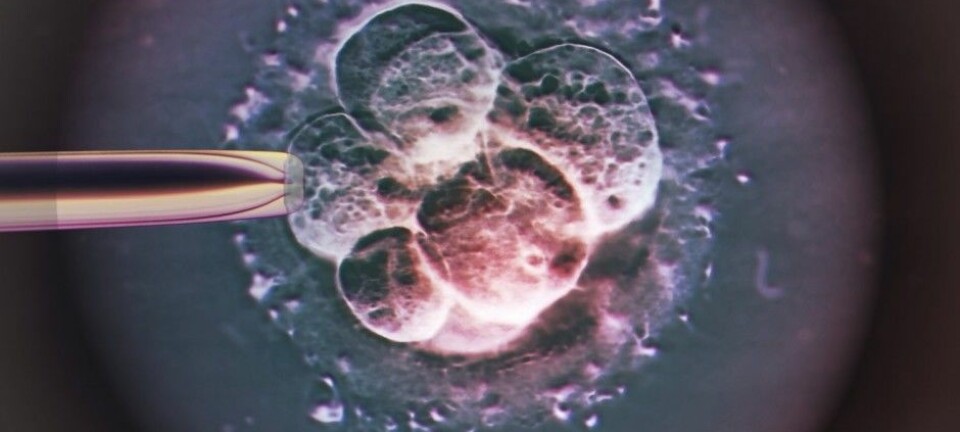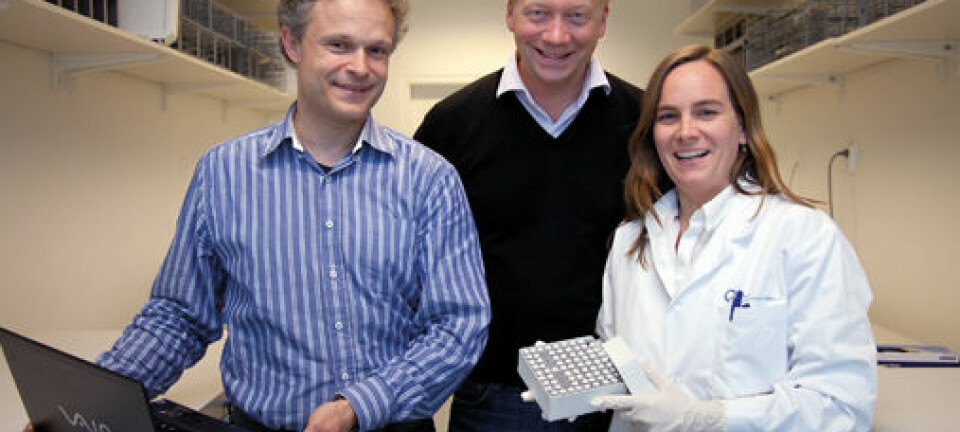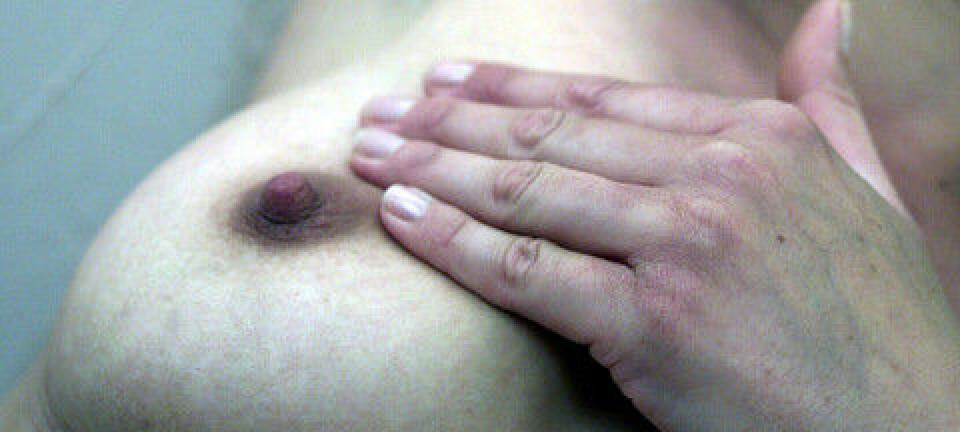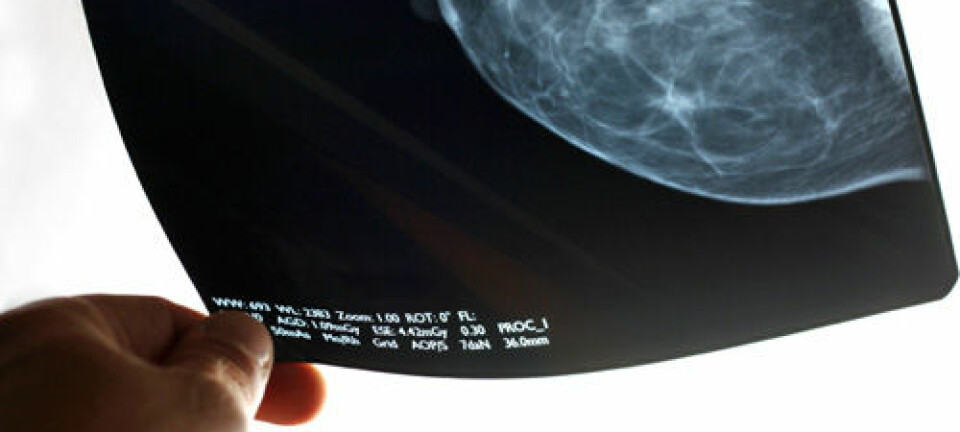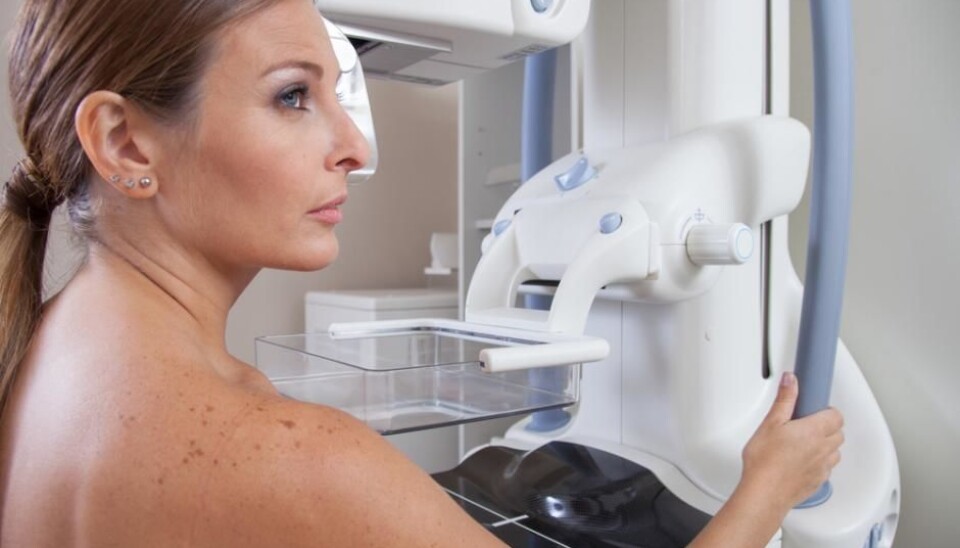
Mammography screening does not stop advanced breast cancer
Many healthy women are diagnosed with cancer even though the cancer would never have made them ill, shows new research.
“This is a nail in the coffin for breast cancer screenings. We should drop the screening program.”
So says Karsten Juhl Jørgensen, MD and deputy director at the Nordic Cochrane Centre. He is the lead author on an article published in the Annals of Internal Medicine on the effects of breast cancer screening in Denmark.
The study concludes that screening does not stop the advance of breast cancer and that nearly one third of the tumours diagnosed in women offered screening are actually overdiagnosis.
This means that healthy women who would never have become ill from breast cancer are operated on and exposed to radiotherapy and possibly chemotherapy.
“The really dangerous thing here is that people who would never get breast cancer without screening are diagnosed with it. This has huge, negative side effects on their lives. The psychological burden is heavy and the treatment can be dangerous,” says Jørgensen.
Read More: Scientists can now predict breast cancer in four out of five cases
Two centimetre tumours
Scientists at the Cochrane Centre have used the Danish national registers to compare the occurrence of advanced breast cancer (tumours bigger than two centimetres) among women who were either offered screening or not offered screening.
Breast screening has been available in Copenhagen and Funen County since the early 1990’s, accounting for around 20 per cent of the population. This allowed the scientists to compare the Danish regions that offered screening with those that did not. In 2007, breast cancer screening was rolled out nationwide, providing a 17 year period of observation with differential access to screening.
“In my eyes, this is some of the most valid research that we have in this area. This is because we have good registers and a control group, which makes the results absolutely trustworthy,” says John Brodersen, a professor in general medicine at the University of Copenhagen, Denmark.
“If the screening program worked then we would see a reduction in the occurrences of advanced breast cancer. If there are more small tumours, but not fewer large tumours, then it doesn’t help—so screening doesn’t stop advanced breast cancer,” says Jørgensen.
Read More: Screening does not prevent aggressive breast cancer
Deadly breast cancer grows quickly
Screening is designed to catch the cancer at an early stage to treat it before it spreads.
“The benefit of screening lies in the fact that you can catch the cancer early and can offer a more gentle treatment and prevent the cancer from developing into deadly breast cancer,” says doctor and project boss at The Danish Cancer Society, Ulla Axelssen.
But Jørgensen says that the new study demonstrates that screening does not catch cancer early.
“The really dangerous tumours grow so quickly that you cannot catch them through screening,” he says, adding that many of the small tumours that you do find by screening, do not grow quickly enough to make a woman ill.
Axelssen finds the new results interesting.
“We’ll read this article with interest at The Danish Cancer Society. We need to take a look at it carefully. It’s an area that we follow closely,” she says.
“The study doesn’t make me say with certainty that we should no longer screen [for breast cancer]. There are many other studies that show screening has a big effect. The usefulness outweighs the disadvantages,” says Axelssen.
Read More: Scientists discover enzyme that allows cancer to spread into bone
Danish cancer researchers are sceptical
The cancer scientists with experience in breast cancer and screening that ScienceNordic spoke to are critical of the study. They all disagree that the screening process is ineffective and harmful, as the scientists behind the study say.
Peer Christiansen, a professor in breast surgery at Aarhus University Hospital says “the results are very different from those we’ve seen in other studies, also from studies that have highlighted the issue of over-diagnoses from screening programs in Copenhagen and Fyn [central Denmark].”
Christiansen published a study on the subject in 2014, which showed a positive effect from screening. And he knows the scientists behind the new study.
“We know that they have an agenda, which is against screening. They’ll use this to say that we should abolish the screening program. I totally disagree. I’m a clinician with real life patients. I see it through different eyes than the scientists from the Cochrane Centre. I can see the utility and benefit for patients receiving mammograms,” he says.
Read More: Scientists: we will never find a cure for cancer
Doctor: so how do we ensure that women are diagnosed?
Doctor and head of screening at Rigshospital, Copenhagen, Ilse Vejborg writes in an email:
“There are lots of articles on this, both Danish and international studies, and we in Denmark track the quality of the Danish screening methods very closely. All the indicators of medical quality show that it compares well with international recommendations, including the [identification] of small cancers of one centimetre or less, and the proportion of screenings that detect cancers that have not spread to the lymph nodes,” she writes.
She points to a study from 2013 in the British Medical Journal and to a report from the Danish Quality Database on Mammogram Screening from 2015.
“The same research group have previously argued strongly against women checking themselves regularly for [breast cancer] and that this cannot be used as a screening method. There is broad agreement on this internationally. But how can we ensure that women are diagnosed early enough, before the cancer reaches an advanced stage and when there’s a better chance of survival” she writes.
---------------------
Read more in the Danish version of this article on Videnskab.dk
Translated by: Catherine Jex
